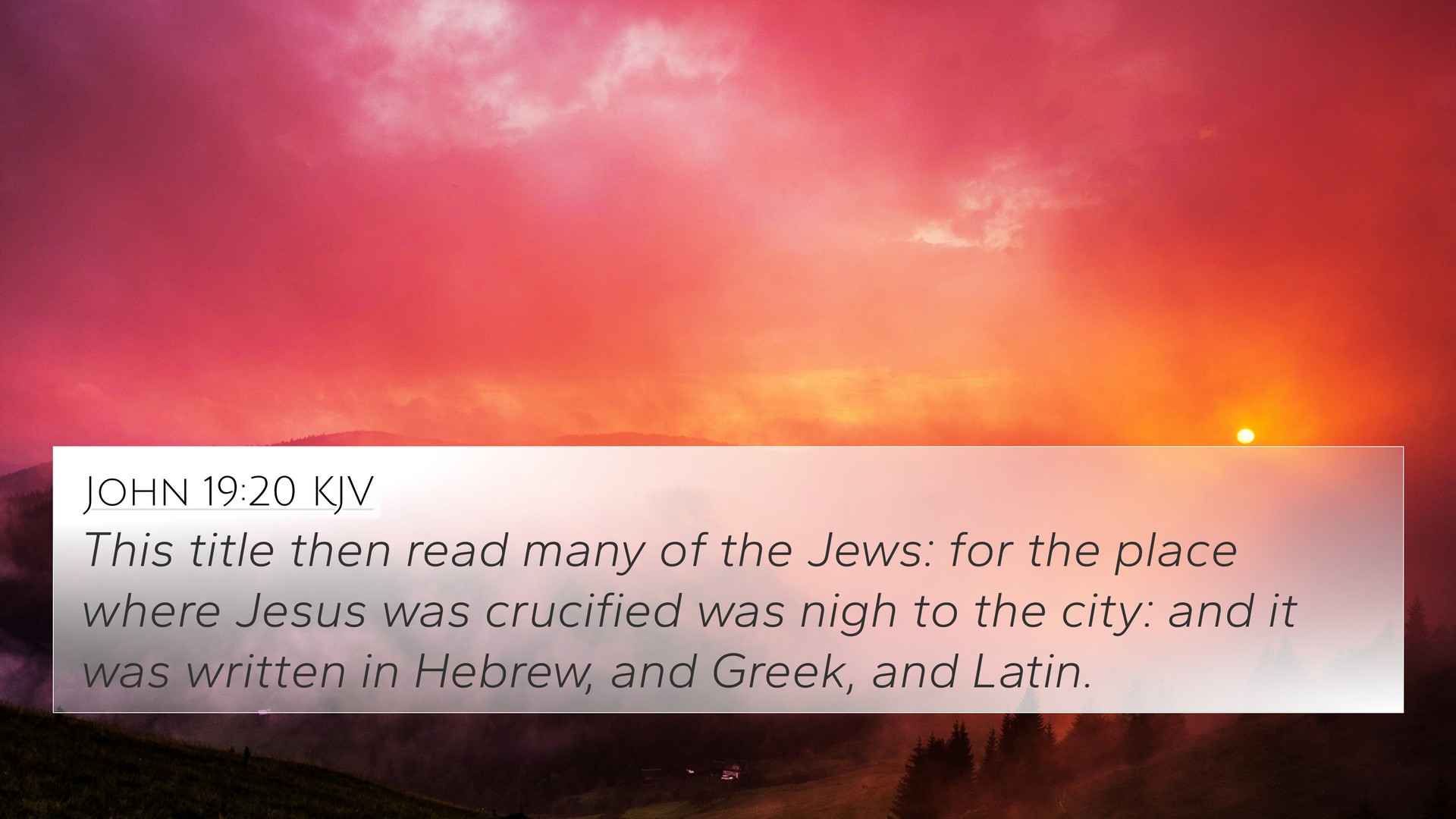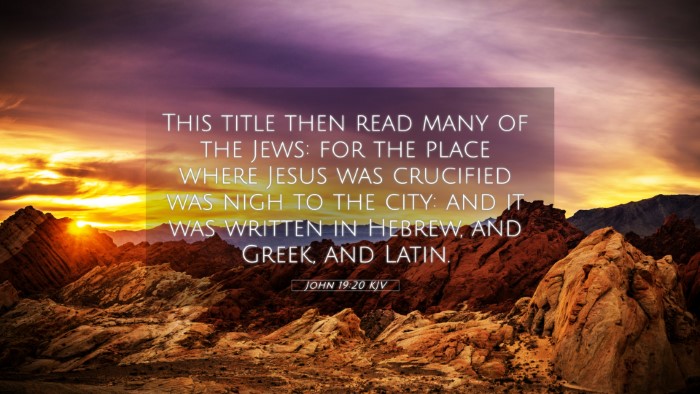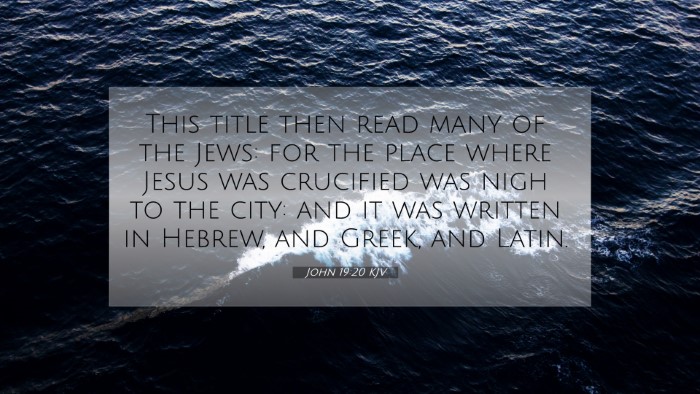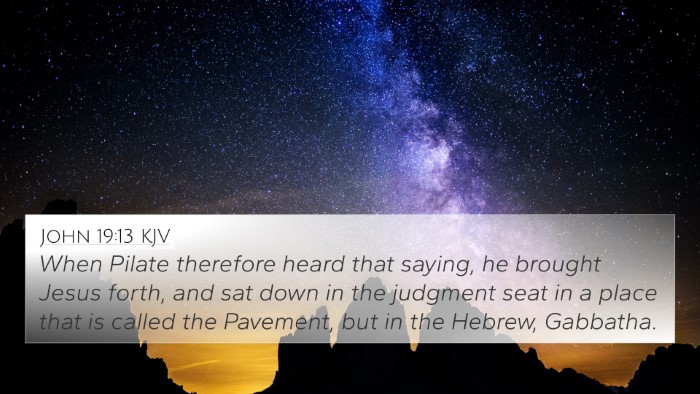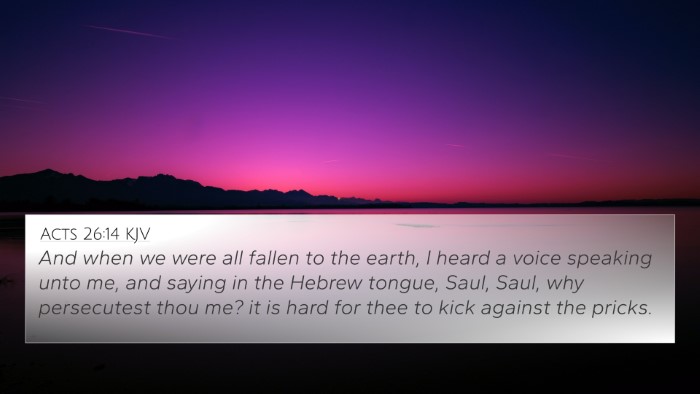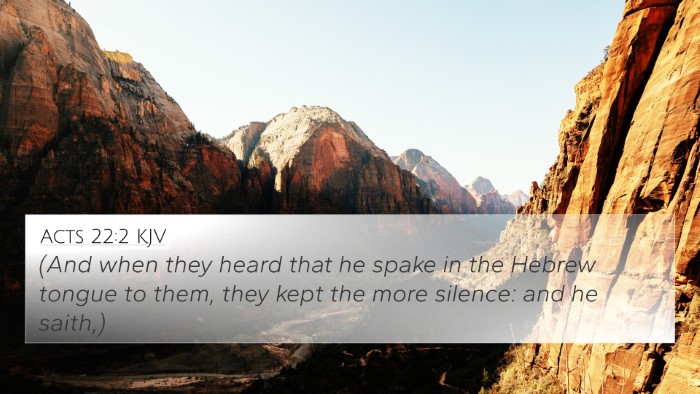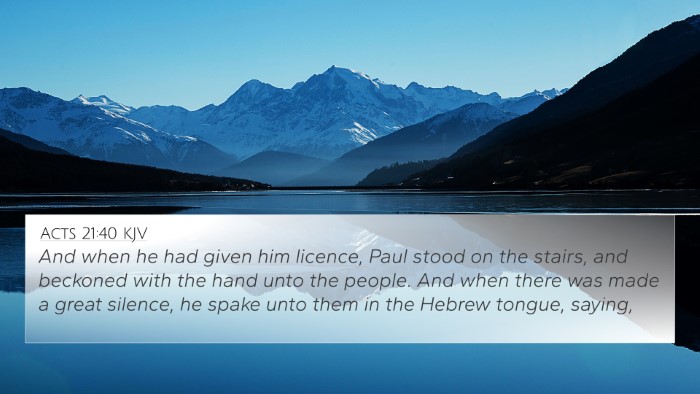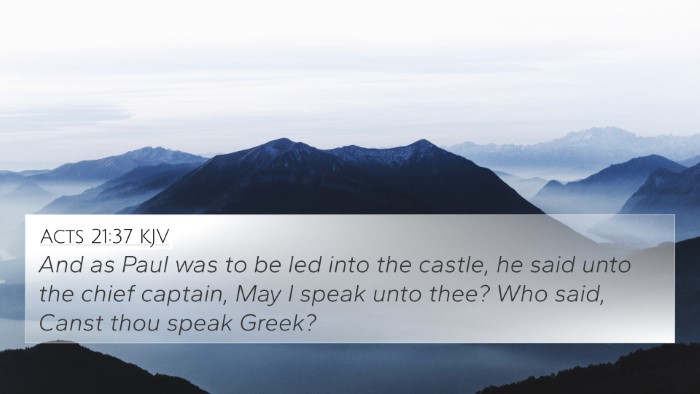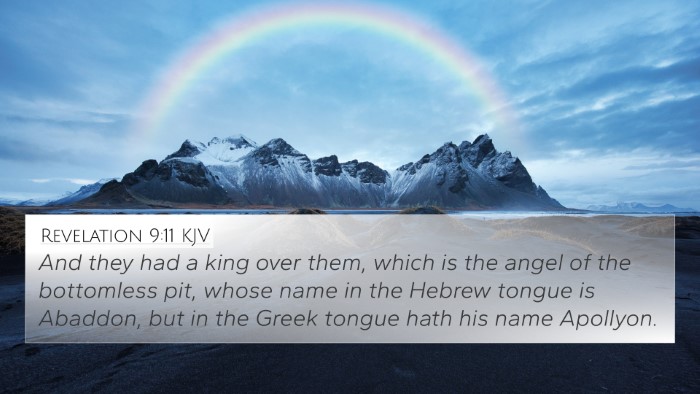Understanding John 19:20
John 19:20 states:
"And Pilate wrote a title and put it on the cross. And the writing was: JESUS OF NAZARETH, THE KING OF THE JEWS."
This verse serves as a critical point in the crucifixion narrative and carries profound theological implications. It addresses themes of authority, identity, and the fulfillment of prophecy.
Context and Overview
The context of this verse is essential for understanding its significance. Jesus is being crucified, and Pilate, the Roman governor, provides a notice that succinctly summarizes the charges against Jesus, labeling Him as "The King of the Jews." This declaration is both a public statement of the reason for Jesus' execution and an ironic testament to His true identity.
Theological Implications
This title reflects several theological themes:
-
Messianic Fulfillment:
This declaration highlights the fulfillment of Old Testament prophecies regarding the Messiah, who would be rejected and suffer (Isaiah 53). For example, Zechariah 9:9 foretells the coming of a king humble and riding on a donkey, contrasting with His portrayal on the cross.
-
Irony and Mockery:
Pilate's inscription serves as an ironic statement: while Jesus is mocked as a king by His accusers, the reality of His kingship transcends human misunderstanding (Philippians 2:9-11).
-
The Universality of Christ's Kingship:
By labeling Jesus as "The King of the Jews," the gospel emphasizes that His reign is not limited to one people but is intended for all nations (Matthew 28:18-20).
Commentary Insights
Various public domain commentaries provide additional insights into this verse:
-
Matthew Henry:
Henry emphasizes that the title reflects the fulfillment of God's plan and hints at Christ's royal dignity, despite His suffering.
-
Albert Barnes:
Barnes focuses on the political motivations behind Pilate's actions, suggesting he used the title to placate the Jewish leaders while subtly affirming Jesus’ claim to kingship.
-
Adam Clarke:
Clarke highlights the significance of the title's language and its implications regarding the Jewish expectations of the Messiah, which were ultimately distorted in their rejection of Jesus.
Bible Verse Cross-References
To enhance your understanding, here are several Bible verses related to John 19:20:
- Isaiah 53:3: "He was despised and rejected of men, a man of sorrows, and acquainted with grief..."
- John 1:49: "Nathanael answered and said to Him, 'Rabbi, You are the Son of God! You are the King of Israel!'
- Matthew 27:37: "And they put up over His head the accusation written against Him: THIS IS JESUS THE KING OF THE JEWS."
- Revelation 19:16: "And He has on His robe and on His thigh a name written: KING OF KINGS AND LORD OF LORDS."
- Luke 23:38: "And an inscription also was written over Him in letters of Greek, Latin, and Hebrew: THIS IS THE KING OF THE JEWS."
- Zechariah 12:10: "And I will pour on the house of David and on the inhabitants of Jerusalem the Spirit of grace and supplication; then they will look on Me whom they pierced..."
- Philippians 2:9-11: "Therefore God also has highly exalted Him and given Him the name which is above every name..."
- Matthew 21:5: "Tell the daughter of Zion, 'Behold, your King is coming to you, lowly, and sitting on a donkey, a colt, the foal of a donkey.'
- Romans 1:3-4: "Concerning His Son Jesus Christ our Lord, who was born of the seed of David according to the flesh, and declared to be the Son of God with power according to the Spirit of holiness..."
- Acts 2:36: "Therefore let all the house of Israel know assuredly that God has made this Jesus, whom you crucified, both Lord and Christ."
Conclusion
John 19:20 highlights the duality of Jesus’ kingship and His suffering, reflecting both prophetic fulfillment and the profound misunderstanding of his role by earthly authorities. This verse invites believers to explore the larger narrative of the Bible, linking scriptural themes and understanding the depth of Christ’s mission.
Exploration Tools
To further explore Bible verse connections, consider using:
- Bible concordance: To find words and phrases.
- Bible cross-reference guide: For thematic studies across different books.
- Bible reference resources: For detailed studies on specific topics.
- Cross-reference Bible study: Methods for studying related verses.
- Comprehensive Bible cross-reference materials: For extensive connections.
Further Study
For a deeper understanding of how to identify cross-references in the Bible, explore methods that focus on:
- Identifying connections between Old and New Testament.
- Links between the Prophets and Apostolic teachings.
- Cross-referencing Psalms with New Testament teachings.
- Interpreting Biblical themes through cross-references.
By engaging with these resources and cross-referencing approaches, readers can build a comprehensive understanding of the interconnectedness of the scriptures, particularly as it relates to significant verses like John 19:20.
